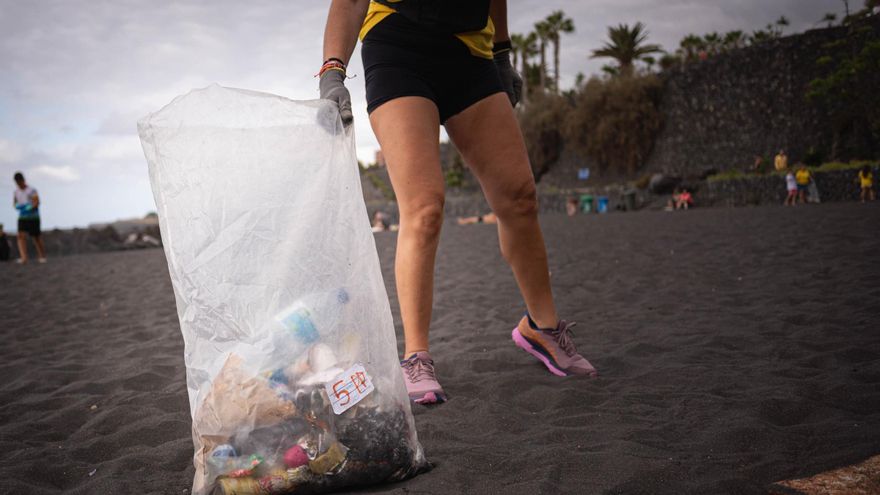
Outside the beach bar in Punta Brava, dozens of people gathered around a table awaiting the first instructions from the Rayuela Association. This Tuesday, the organisation launched the project Social Infrastructures: The Village Palaces of Tenerife, in collaboration with the Stop Discharges to the Sea platform and the initiative Precious Plastics Canarias. The Village Palaces aims to strengthen mutual support, combat isolation, and prevent emotional distress in neighbourhoods feeling the effects of urban pressure and tourism.
The attendees organised themselves into two groups. The first handled the collection of cigarette butts, starting from Playa del Castillo and moving towards Punta Brava. The second group focused on collecting plastics, beginning from Playa Chica. Armed with perforated baskets to separate sand from rubbish, gloves, and bags to store each discovery, the volunteers enthusiastically began their task, determined to transform the shoreline with every step.
Project
The project emerged from the needs identified by Rayuela in its own work. The organisation, which develops employment and social action programmes in various neighbourhoods across the island, recognised the necessity for a proposal that went beyond just job placement or short-term assistance, aiming instead to build lasting connections.
“We needed to create a project that linked us to the territory, focusing on the protection of the area and responding to the interests of our own team,” explains Irene Ruán, the initiative’s coordinator. Thus, the idea of the Village Palaces was born, a symbolic and real space for neighbours to reconnect.
The choice of Punta Brava and San Andrés was intentional. Both areas share a common characteristic: the significant impact of holiday rentals on a limited territory. “We considered these locations particular as the presence of tourist accommodations is palpable, and the residents feel it too,” details Ruán. In addition to urban pressure, there is a profound community attachment connected to traditions and local memory, which Rayuela aims to revive and strengthen.
Punta Brava
The reception in Punta Brava has been positive, though not without challenges. “Initially, it’s difficult because it’s a community process and the neighbourhood is experiencing clear distress regarding tourism and the beach,” acknowledges the coordinator. However, dialogue has paved the way forward; through conversations with residents, a relationship of trust has been built, and the community has realised that “we are a channel for conveying their concerns and working together on other initiatives”.
In fact, the project begins with a study on mental health conducted in collaboration with the University of La Laguna, which will measure the impact of the intervention and assess the model’s effectiveness in contexts of population displacement caused by tourism.
“The greatest risk to community life is loneliness,” affirms Ruán. “We are moving towards an individualised society where, when problems arise, we seek individual rather than collective solutions. That’s why we believe it is essential to strengthen everything related to community support, with networks and neighbourly ties.”
















